5 Secret Ingredients You Should Use in Your Laundry, According to Experts
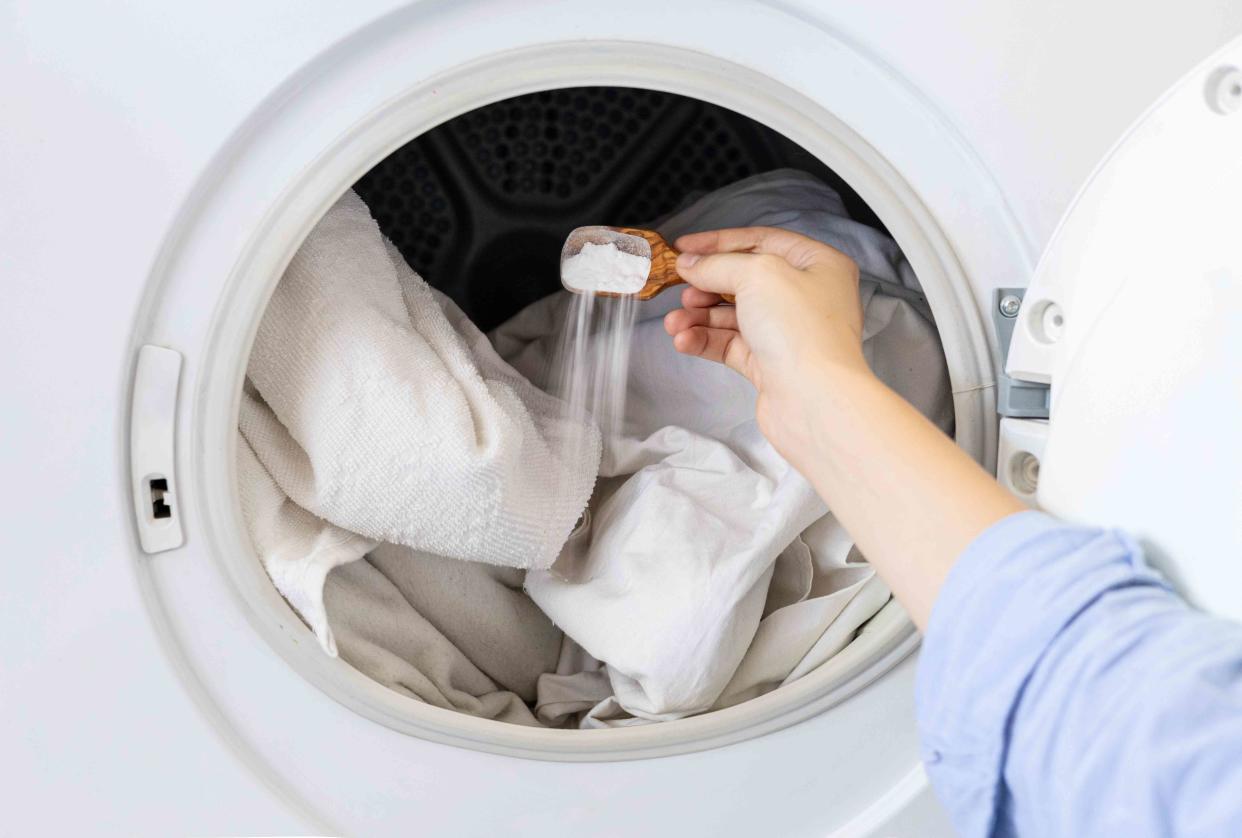
The Spruce / Sanja Kostic
We are huge fans of great laundry hacks at The Spruce, and we especially love reusing household items as easy, effective additions to your machine. This is especially true if they can replace harsh chemicals, or lessen the amount of product needed to get a load of laundry smelling great and feeling fresh.
It’s not a great idea to just toss in pantry items and hope for the best—and while we love a great TikTok tip, we also like to check in with the experts to make sure the suggestions are trustworthy. With this in mind, we turned to a few pros to find out which secret ingredients are best for adding to our laundry for the freshest loads.
Hydrogen Peroxide for White Loads Only
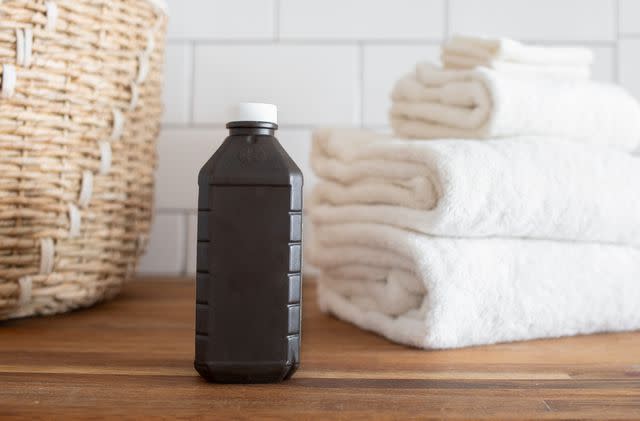
The Spruce / Candace Madonna
According to Allison Evans, the co-founder of Branch Basics, 3% hydrogen peroxide is a great additive to your laundry routine—but only for your white garments, as it’s an excellent bleach alternative.
“To use, add one cup of hydrogen peroxide (the one in the brown bottle) directly to the washer,” she says. “Peroxide also works wonders to remove nearly any type of stain from white clothing and is a natural disinfectant.”
White Vinegar for Stain Removal
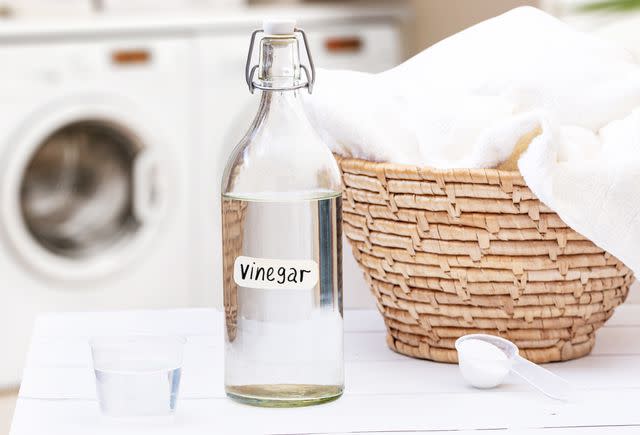
The Spruce / Ulyana Verbytska
At this point, household hacks and white vinegar go hand-in-hand. While there are some limitations, this little kitchen staple can do a lot of heavy lifting at home. According to Wayne Edelman of Meurice Garment Care, it’s actually a great additive for stain removal.
“Vinegar or acetic acid has the tendency to swell fibers, thus allowing more soluble soil removal,” Edelman says.
Evans agrees and assures us vinegar won’t make your clothes smell funky, either. Best of all, it’s not just a great natural fabric softener and stain remover. It also helps to descale and clean your washer when using. If you’re not sure how much to add, Edelman suggests a quarter cup for a standard-sized load—less if you’re working with a smaller amount of clothes.
Lemon Juice as a Cure-All
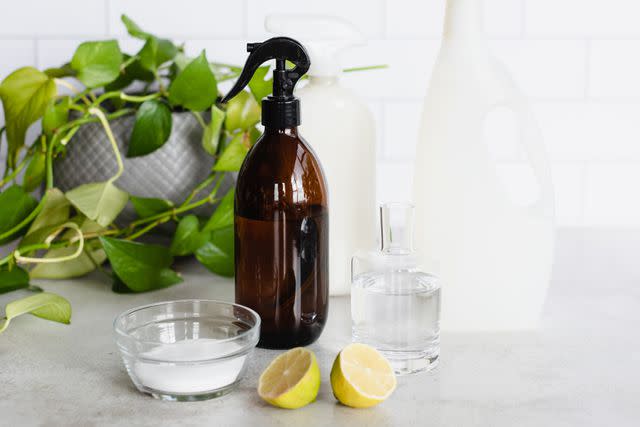
The Spruce / Michelle Becker
As Evans explains, lemon juice is a cure-all addition for pretty much any load (though you should take more delicate fabrics into careful consideration).
“Lemon juice’s natural acetic acid and enzymes help dissolve dirt, grease, and grime while leaving clothes extra soft with a fresh scent,” Evans says. It also pairs well with white vinegar, if adding both appeals.
Baking Soda for Odors and Colors
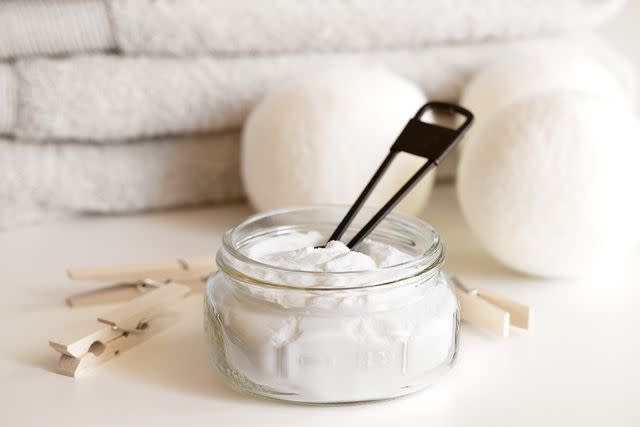
The Spruce / Ana Cadena
Along with white vinegar, Edelman says there’s another item that’s great for both stain removal and fresher scents: baking soda. Like white vinegar, it can help pull out stains and odors when added in with your regular detergent. According to Edelman, it will also result in whiter whites and more vibrant colors.
He did, however, give us one word of warning: use in moderation. “It will leave a powdery residue if not dissolved,” he says, and this is only likely to happen if you use too much.
Dish Soap for Pre-Treating
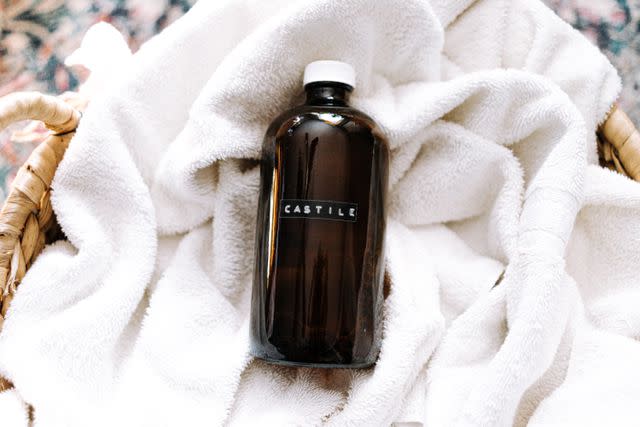
The Spruce / Jorge Gamboa
While dish soap can be a huge help in lifting oil stains from fabrics, Edelman says this should only be used to pre-treat items before putting them in the washing machine. It could cause over-sudsing and leave residue in the machine, he advises.
Additional Tips for Using These in Laundry Loads
Before trying any of the above, Evans reminded us of one important fact. “True cleanliness doesn't have a specific scent,” she says.
At first, adding the above to your laundry loads might feel anti-climactic, because the scents you’re used to from traditional detergent and fabric softener, like lavender and fresh linen, will be missing. As a general word of warning, Evans also tells us that any additive should be used sparingly. “Moderation is key to avoid residue buildup on your clothes or inside your washing machine,” she says.
Read Next: 10 Laundry Rules That Aren't Actually True
Read the original article on The Spruce.

